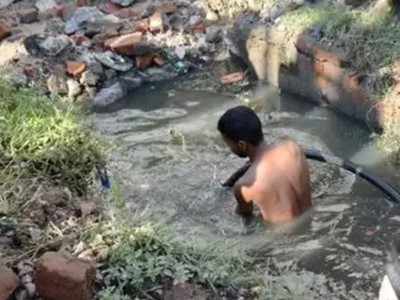The Indian Express 26.04.2013
Civic warmth for street children

Gharte project aims to bring street children into the mainstream of society.
PMC makes medical check-up must for them.
Mandatory annual medical check-up and police verification of each
child besides a monitoring body are some add-on steps being taken by
Pune Municipal Corporation (PMC) to ensure benefits for street children
under the Gharte project that private agencies carry out for the civic
body.
The urban community development department of PMC had proposed to
extend the contract with three of the four agencies — the contract with
one has been scrapped — to continue the Gharte project that aims at
bringing street children into the mainstream of society.
The children are provided with food, clothes and accommodation in
select civic schools where social workers educate them and teach them
proper social habits.
“There was no problem extending the contract of the agencies.
However, there were some complaints about facilities given to street
children and that needed to be addressed. We have included a few more
clauses in the contract to be signed with the agencies,” said Vishal
Tambe, chairman of civic standing committee.
He said it has been made mandatory for agencies to carry out
medical check-up of each child under the project. “The medical reports
of children would help us in deciding physical improvement every year.
Also, agencies have been asked to get the identity of each child
verified by the police department,” Tambe said.
Earlier, there was no monitoring body to look into the
functioning of each Gharte centre, he said adding that a monitoring
agency will be appointed to ensure all the benefits envisaged are passed
on to street children.
The PMC had cancelled the contract of one of the agencies after
finding it violating set rules. The applications of 10 new organisations
that showed interest in the initiative were rejected for lack of
experience.
“The agencies appointed for three years will not be given 100 per
cent funding and will have to bear 25 per cent of the total expenditure
but the demand of an increase in funds per group has been accepted,”
Tambe said.
The ambitious project was started in 2007 with four centres in
different parts of the city where street children were provided food,
clothing and education free of cost. At some places, the civic body had
made arrangements for the stay of children. The civic body earlier
provided 100 per cent funding and paid Rs 61,651 every month for a group
of 20 children. Every centre was allowed to have a maximum of four
groups and a minimum of two.

